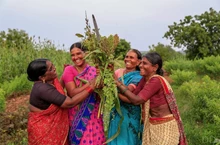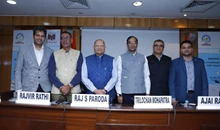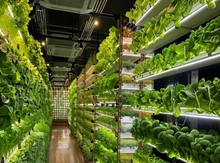
India has categorically stated that no genetically modified (GM) rice variety has been approved for commercial cultivation in India and that no GM rice has been exported. Union Minister for Agriculture Narendra Singh Tomar said in a written reply in Lok Sabha on Tuesday in response to a question about whether GM rice was discovered in a shipment exported to the EU in 2021.
In his response, he stated that he received a border rejection notification no. 2021.3259 dated June 21, 2021 for allegedly unapproved GM rice flour. "The situation was investigated. There were no GMO varieties grown in India, and there is no risk of cross-contamination even during inland transportation. "After due testing and verification before shipment, the consignment was tested by an inspection agency with international recognition and issued a non-GMO certificate," he said, adding, "No variety of GM rice has been approved for commercial cultivation in India."
The Indian government stated in October 2021 that it will express its displeasure to France and the European Union for being wrongfully identified as the source of 500 tonnes of genetically modified broken rice converted into rice flour by a French company, Westhove, despite the fact that the country does not produce any commercial variety of GM rice.
The Commerce Ministry claimed in a statement that the contamination could have occurred later while the imported broken rice was being processed in the EU, and that it could also be a conspiracy to tarnish India's image as a reliable supplier of quality rice.
In response to another question, the Minister stated that the Indian Agricultural Research Institute (IARI) is working on developing drought and salinity-tolerant rice strain.
When asked if the work is being done with a new gene editing technology, he stated that it is being done with CRISPR-Cas9 mediated genome editing technology. He stated that the research is carried out with the approval of the Institutional Biosafety Committee (IBSC), which is formed by the Department of Biotechnology (DBT), Government of India, in accordance with Rules 1989 under the Environment (Protection) Act 1986.
Tomar responded to a question about when the new variety will be available in the market, saying, "Genome edited lines are expected to be available for field evaluation by Kharif 2024 and for general cultivation during 2026, after two years of field testing.”
In response to a separate question about the country's estimated foodgrains production, he cited the third advance estimates and stated that the estimated production of coarse cereals, pulses, and oilseeds during 2021-22 was greater than the average production over the previous five years (2016-17 to 2020-21).











